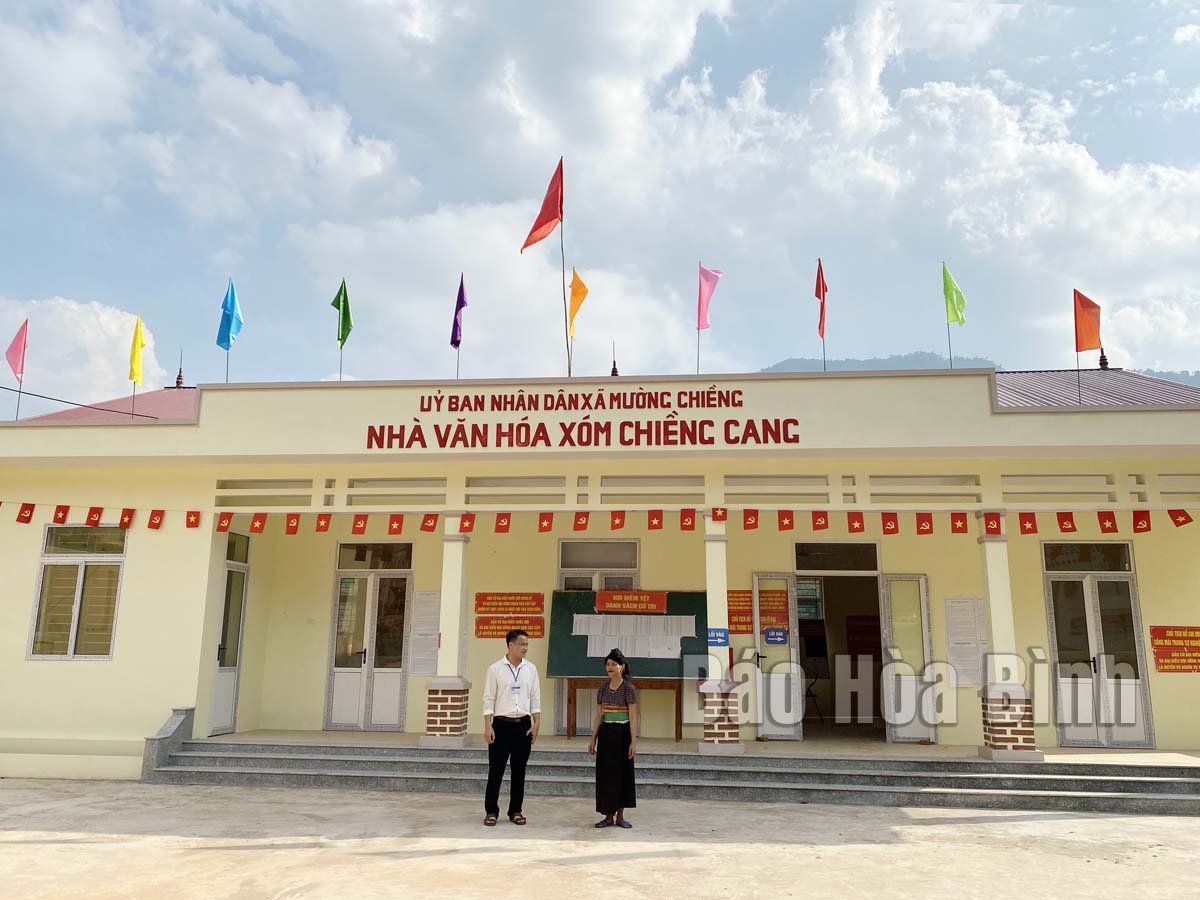(HBO) - The "All people unite to build new-style rural and civilised urban areas" movement was actively responded and particiapted by people of Muong Chieng commune in Da Bac district of Hoa Binh province. It has been associated with other movements such as "All people participate in protecting national security", "All people participate in prevention of and fight against crime, drugs, prostitution", traffic safety, pandemic prevention and control, and establishment of residential areas of self-managing and protecting the environment.
Residents
at Chieng Cang hamlet, Muong Chieng commune (Da Bac district) donate land to
build a community houseto meet new-style rural criteria.
Ha Van Muong, Chairman of the Fatherland Front Committee of Muong Chieng
commune, said the most prominent characteristic of the movement is the
mobilisation of the private sector in building rural roads.
The Fatherland Front and its member organisations have closely
coordinated and regularly visited residential areas to call on people to
contribute to the construction of inter-communal roads in line with the motto
"The State and the people work together.” Since 2016, about 169,919 sq.m of
land have been donated for building roads to production areas, a
stream-spanning bridge and a community house.
The emulation movement on economic development, helping each other to reduce
poverty, improve living standards and getting rich legitimately has been
promoted. The per capita income in the commune has reached 26.5 million VND, an
increase of 18.5 million VND compared to 2016. The rate of poor households
decreased to 16.86 percent, a decline of 37.2 percent against 2017’s figure.
The commune had 913 households achieving the title of good production and
business households in all fields in the 2016 – 2020 period.
People of all ethnic groups in the area always abide by all guidelines of the
Party, policies and laws of the State, well implement patriotic emulation
movements and campaigns. Positive changes have been seen in the implementation
of a civilised lifestyle in weddings, funerals and festivals, in line with the
trend of civilized lifestyle and environmental protection.
Attention also has been paid to education - training, care and protection of
people's health.
The movement of studious family and encouragement studying family has been
spread widely, contributing to the building of a learning society, such as
Chieng Cang, Na Muoi, Xa and Vi families. People have actively responded to
measures to prevent and control the COVID-19 pandemic.
The building of a cultural family was organised and widely deployed to each
residential area and household. Forms of dissemination to carry out the
movement are integrated through member organisations.
There are seven
residential areas in the commune that have won the title of cultural
residential areas while 72.2 percent of households have gained the title of
cultural family. People actively participate in environmental protection,
building a bright, green, clean and beautiful environmental landscape,
contributing to the completion of criterion No. 17 on the environment in the
new-style rural area building.
Bui Van Huong, Vice Chairman of the Muong Chieng Commune People's Committee,
said the campaign has gradually made obvious socio-economic changes. It also
helped meet criteria related to culture, environment, income and poor
households to ensure that the commune would be recognised to meet new-style
rural areas’ standards this year.



